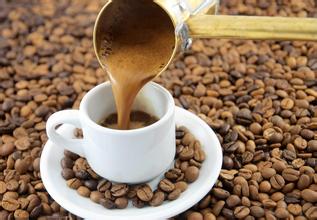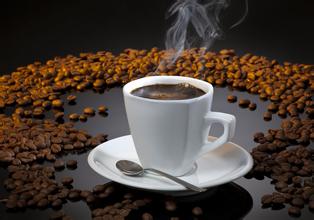Introduction to the flavor and taste of Puerto Rico coffee manor with pure taste and unique flavor
According to the Constitution formulated by the United States in 1952, the Governor is the Supreme Chief Executive, elected for a term of four years, and consists of a Council of Ministers. The United States Congress has the power to repeal laws passed by the Congress of Puerto Rico. The parliament is divided into the Senate and the House of Representatives. The island elects local commissioners to be resident in the United States Congress, but can only vote on the House Committee. [2]
Political party
There are three main political parties: the people's Democratic Party, the New Progressive Party and the Puerto Rican Independence Party. Polish citizens do not have the right to vote for the president of the United States, but can only take part in the primaries of both parties. [2]
Political dignitaries
The current Governor Alejandro Garcia Patia (Alejandro Garcia Padilla)
San Juan
San Juan
), people's Democratic Party. Born in Puerto Rico on August 3, 1971, he received a bachelor's degree in political science and economics from the University of Puerto Rico and a law degree from the Pan American University of Puerto Rico. Professional lawyer. Zeng Renbo, assistant judge of the Court of Appeal and professor of law at the Pan American University of Puerto Rico. From 2005 to 2007, he served as Minister of Consumer Affairs of Poland. He was elected as a senator in 2008. He has been chairman of the people's Democratic Party since April 2011. He was elected Governor of Poland in November 2012 and took office in January 2013. [2]
Successive governors of Puerto Rico
Juan Ponce de Leon served a term of office from 1509 to 1512.
In the Spanish-American War, Spain lost and ceded Puerto Rico to the United States. In 1900, President McKinley appointed Charles Herbert Allen as the first civilian governor in Puerto Rico. The list of governors since then is as follows:
1949-1965: Louis Munoz (1898-1980, people's Democrat, first, second, third and fourth governor of Puerto Rico, journalist and poet)
1965-1969: Roberto Sanchez (1913-1997, people's Democrat, fifth governor of Puerto Rico, engineer)
1969-1973: Louis Ferry (1904-2003, New Progressive, sixth Governor of Puerto Rico, engineer)
1973-1977: Rafael Hernandez Cologne (1936, people's Democratic Party, seventh, tenth and eleventh governor of Puerto Rico, lawyer)
1977-1985: Carlos Romero (1932, member of the New Progressive Party, eighth and ninth governor of Puerto Rico, lawyer)
1985-1993: Rafael Hern á ndez Cologne (second term)
1993-2001: Pedro Rosayo Gonzalez (1944, member of the New Progressive Party, 12th and 13th Governor of Puerto Rico, pediatrician)
2001-2005: Sierra Maria Calderon (1942, people's Democratic Party, 14th Governor of Puerto Rico, businessman)
2005-2009: Anibal Acevedo (people's Democrat, 15th Governor of Puerto Rico, judge)
2009-2013: Luis Fortunio Burset (1960, member of the New Progressive Party, 16th Governor of Puerto Rico, Judge
Puerto Rico's coffee beans are carefully planted, pure, fragrant and heavy, of which the best coffee is Yauco Selecto, which means "Selecto". Yaocote Coffee is grown only on three farms in the southwest of the island, San Pedro, Caracolillo and La Juanita. It is a truly high-quality coffee with a strong flavor and a long aftertaste. The hills of southwestern Puerto Rico have a mild climate, a long period of plant maturity (from October to February) and high-quality clay. People here have been using an eco-friendly, intensive planting method, picking only fully ripe coffee beans and then flushing them in a drum device for 48 hours. Yaocote selected coffee beans are preserved with sheepskin before sale and will not be removed until order and delivery to ensure the best freshness of the coffee. Relevant U.S. government employees, such as FDA and USEA, will also be present at the transaction, and they are here to monitor producers' compliance with federal regulations. There are also professional reviewers who randomly take one bag of coffee from every 50 bags as samples and use international gauges to identify the quality of coffee beans, all in order to ensure the quality of the real Yaocote selected coffee.
Island Coffee-Puerto Rico
And Jaime Fortuno, the president of Escoki's Escogido Yauco agency, pays silent attention to all this work every year, even the smallest details. Fortuno is an investment banker who graduated from Harvard Business School. He was determined to seize every opportunity to open up a market for top coffee in Puerto Rico. He expects a maximum annual output of 3000 bags of 45kg each, less than 1 per cent of the island's total coffee production.
This is why Puerto Rico and Puerto Rico Yukot select Yauco Selecto, which is the manor bean, the joint brand of Puerto Rico San Pedro, Caracolillo and La Juanita.
Island Coffee-Puerto Rico
In fact, any kind of coffee will be given a unique flavor because of its origin, just like different music styles will always give you different feelings. Puerto Rico Yaoke coffee has the characteristics of boutique coffee, its acidity is very stable, full of particles, complete flavor, rich aroma. The reason why Yaocote chose coffee beans to be better than other producing areas on the island is that it is grown in high-altitude mountain areas, so it grows slowly and has rich fruit flavor, and it uses ancient coffee tree species, which have a unique flavor despite less yield. this is incomparable to some new tree species. Due to the abundant rainfall, rich soil and high-altitude microclimate zone, Yaoke coffee has all the qualities that gourmet coffee should have. Of course, Yaoke coffee is inseparable from the hard work of those coffee workers, who manage the whole process from planting coffee seedlings to post-harvest treatment.
And each kind of coffee has its own unique taste, when you taste Yaoke coffee, you will feel the unique acidic taste of Central American coffee, which is the most characteristic taste of Caribbean island coffee, so some people compare Yaoke coffee to the coffee with the most attractive tongue.

Important Notice :
前街咖啡 FrontStreet Coffee has moved to new addredd:
FrontStreet Coffee Address: 315,Donghua East Road,GuangZhou
Tel:020 38364473
- Prev

Unique flavor of Uganda coffee manor flavor and taste characteristics of boutique coffee beans
During the eight years of Amin's rule, the military dictatorship, political chaos, economic depression, and a large number of citizens fled abroad. Relations between Uganda and Tanzania are strained. In October 1978, Amin sent troops to occupy a piece of territory along the border of Tanzania. In January 1979, the Tanzanian army launched a counterattack. In March of the same year, more than 20 anti-Amin groups in exile met in Mohi, Tanzania, to form Uganda.
- Next

Introduction to the variety and flavor of the fresh, elegant and full-grained coffee manor in Dominica
After Santo Domingo returned to Spanish rule, the local people gradually formed a consensus on independent statehood. On November 30th, 1821, the former Governor of Santo Domingo, General Jos Nez de Cceres, proclaimed the founding of the country, named Haiti, Spain, and expected to merge under the Greater Colombian State led by President Bolivar of South America. [3] but in February 1822, nine weeks later, Haiti's
Related
- Detailed explanation of Jadeite planting Land in Panamanian Jadeite Manor introduction to the grading system of Jadeite competitive bidding, Red bid, Green bid and Rose Summer
- Story of Coffee planting in Brenka region of Costa Rica Stonehenge Manor anaerobic heavy honey treatment of flavor mouth
- What's on the barrel of Blue Mountain Coffee beans?
- Can American coffee also pull flowers? How to use hot American style to pull out a good-looking pattern?
- Can you make a cold extract with coffee beans? What is the right proportion for cold-extracted coffee formula?
- Indonesian PWN Gold Mandrine Coffee Origin Features Flavor How to Chong? Mandolin coffee is American.
- A brief introduction to the flavor characteristics of Brazilian yellow bourbon coffee beans
- What is the effect of different water quality on the flavor of cold-extracted coffee? What kind of water is best for brewing coffee?
- Why do you think of Rose Summer whenever you mention Panamanian coffee?
- Introduction to the characteristics of authentic blue mountain coffee bean producing areas? What is the CIB Coffee Authority in Jamaica?

